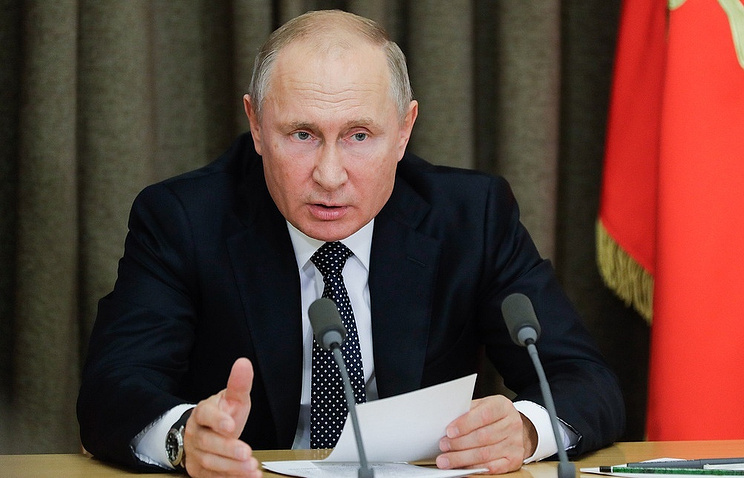
Balkan Insight (26 December 2018)
Romania must consolidate the efforts of all security agencies in the NATO country if it is to respond effectively to an intense hybrid war being waged by Russia in the Black Sea region, a senior Romanian general has told BIRN.
General Marian Botea, chief of the Operations Directorate in the Romanian Defence Ministry, said Ukraine, Romania and Moldova were all targets of a campaign of Russian propaganda, misinformation, subversion and cyber attack.
The threat, he said, had grown since Russia’s 2014 annexation of Ukraine’s Crimean peninsula and was aimed at ordinary Romanians and the political establishment alike.
In an interview with BIRN, Botea, who previously led Romanian troops within NATO’s mission in Afghanistan, said Russia was trying to sow doubt within the minds of Romanians about their place in Europe, about the benefits of the EU and the bloc’s readiness to allow Bucharest into the borderless Schengen zone.
“But Russian propaganda is also targeting leaders,” he said.
“We also look at what vulnerabilities our leaders have and how we can advise them to protect these vulnerabilities when they present themselves in public.”
Botea said the Romanian army, part of NATO since 2004, had the capability to counter such threats, but that the efforts of all agencies should be consolidated.
“It is now important to integrate the efforts of all institutions with responsibilities on this topic, like SRI [Romanian Intelligence Service] and the STS [Special Telecommunications Service], so that we can also counteract [the propaganda],” Botea told BIRN, adding that the Interior Ministry should also be involved.
“Among the most important threats would be, first and foremost, the cyber threats to which we are currently trying to provide a response, including by the establishment of this cyber defence headquarters that we are working on at the Ministry of Defence,” he said.
Ukraine and Moldova
Russia’s strategy was articulated in a 2013 article by General Valery Gerasimov, Russia’s chief of the General Staff, in the weekly trade paper Military-Industrial Kurier in which he laid out a theory of modern warfare in which non-military means of achieving political and strategic goals had grown and in many cases exceeded the power of traditional military means.
A study released in April 2018 by the Bucharest-based Global Focus think-tank said Romanian society was vulnerable.
“Any active Russian propaganda will probably focus on going from niche to mass, it will seek to reach the middle-aged population and the disaffected youth and will back any initiative which meets the criterion of being simultaneously divisive and popular,” the authors wrote.
Botea said neighbouring Moldova was also at risk due to geopolitical divisions among its people, who are split between integration with the West and old ties with Russia. Many Moldovans work abroad, both in Russia and the EU, sending money home to support their families.
“In Moldova, these two currents meet and there is probably a struggle which is also reflected at a political level in the evolutions… between the president and the government,” he said.
Key to the defence against Russia’s hybrid war was Ukraine, Botea argued.
“Because western Ukraine is strong and oriented towards the West, it is a heavenly blessing for Romania. A strong and friendly Ukraine would help Moldova to move better towards the West,” he said. “From a security point of view, it would be the ‘first responder’ to what the Russian threat means to the eastern part of Europe.”
Botea said Russia’s current priority was to tighten its grip on Crimea and the extraction of natural resources from eastern Ukraine.
“As far as I understand, eastern Ukraine and the Crimea have been played already,” he said. “The issue can only be discussed at the political level. On the other hand, it is very unlikely that they will come back [to Ukraine]. The Russians are consolidating the positions they control at the moment.”
Ultimately, he said, “their strategy is to promote their strategic objectives on a global scale.”
http://www.balkaninsight.com/en/article/romania-eyes-coordinated-defence-against-russian-hybrid-war-12-25-2018
No comments yet.
- SYRIA NATIONAL THREATENS ARMENIA MINISTRY STAFF The Caucasus and Turkish-Armenian Relations 26.12.2018
- MONTENEGRO: LARGEST SUPPORT FOR EU MEMBERSHIP IN FIVE YEARS The Balkans 26.12.2018
- HAPPY INDEPENDENCE AND UNITY DAY, SLOVENIA! The Balkans 26.12.2018
- BREXIT BRITAIN WILL BE JUST FINE Europe - EU 26.12.2018
-
 PUTIN SEES NO THREAT IN PARIS AGREEMENT ON CLIMATE CHANGE
Asia - Pacific
26.12.2018
PUTIN SEES NO THREAT IN PARIS AGREEMENT ON CLIMATE CHANGE
Asia - Pacific
26.12.2018
-
25.01.2016
THE ARMENIAN QUESTION - BASIC KNOWLEDGE AND DOCUMENTATION -
12.06.2024
THE TRUTH WILL OUT -
27.03.2023
RADİKAL ERMENİ UNSURLARCA GERÇEKLEŞTİRİLEN MEZALİMLER VE VANDALİZM -
17.03.2023
PATRIOTISM PERVERTED -
23.02.2023
MEN ARE LIKE THAT -
03.02.2023
BAKÜ-TİFLİS-CEYHAN BORU HATTININ YAŞANAN TARİHİ -
16.12.2022
INTERNATIONAL SCHOLARS ON THE EVENTS OF 1915 -
07.12.2022
FAKE PHOTOS AND THE ARMENIAN PROPAGANDA -
07.12.2022
ERMENİ PROPAGANDASI VE SAHTE RESİMLER -
01.01.2022
A Letter From Japan - Strategically Mum: The Silence of the Armenians -
01.01.2022
Japonya'dan Bir Mektup - Stratejik Suskunluk: Ermenilerin Sessizliği -
03.06.2020
Anastas Mikoyan: Confessions of an Armenian Bolshevik -
08.04.2020
Sovyet Sonrası Ukrayna’da Devlet, Toplum ve Siyaset - Değişen Dinamikler, Dönüşen Kimlikler -
12.06.2018
Ermeni Sorunuyla İlgili İngiliz Belgeleri (1912-1923) - British Documents on Armenian Question (1912-1923) -
02.12.2016
Turkish-Russian Academics: A Historical Study on the Caucasus -
01.07.2016
Gürcistan'daki Müslüman Topluluklar: Azınlık Hakları, Kimlik, Siyaset -
10.03.2016
Armenian Diaspora: Diaspora, State and the Imagination of the Republic of Armenia -
24.01.2016
ERMENİ SORUNU - TEMEL BİLGİ VE BELGELER (2. BASKI)
-
AVİM Conference Hall 24.01.2023
CONFERENCE TITLED “HUNGARY’S PERSPECTIVES ON THE TURKIC WORLD"









